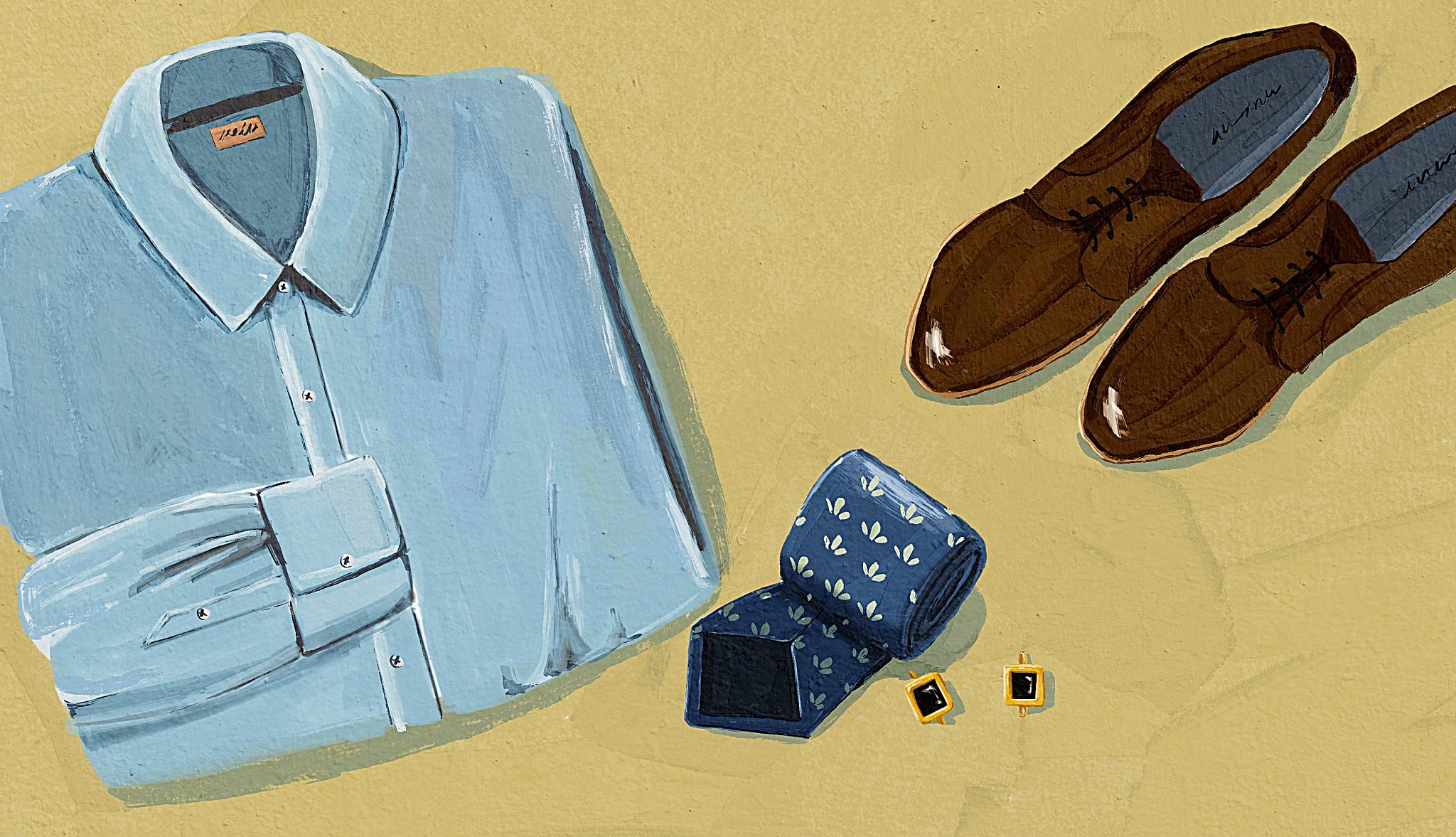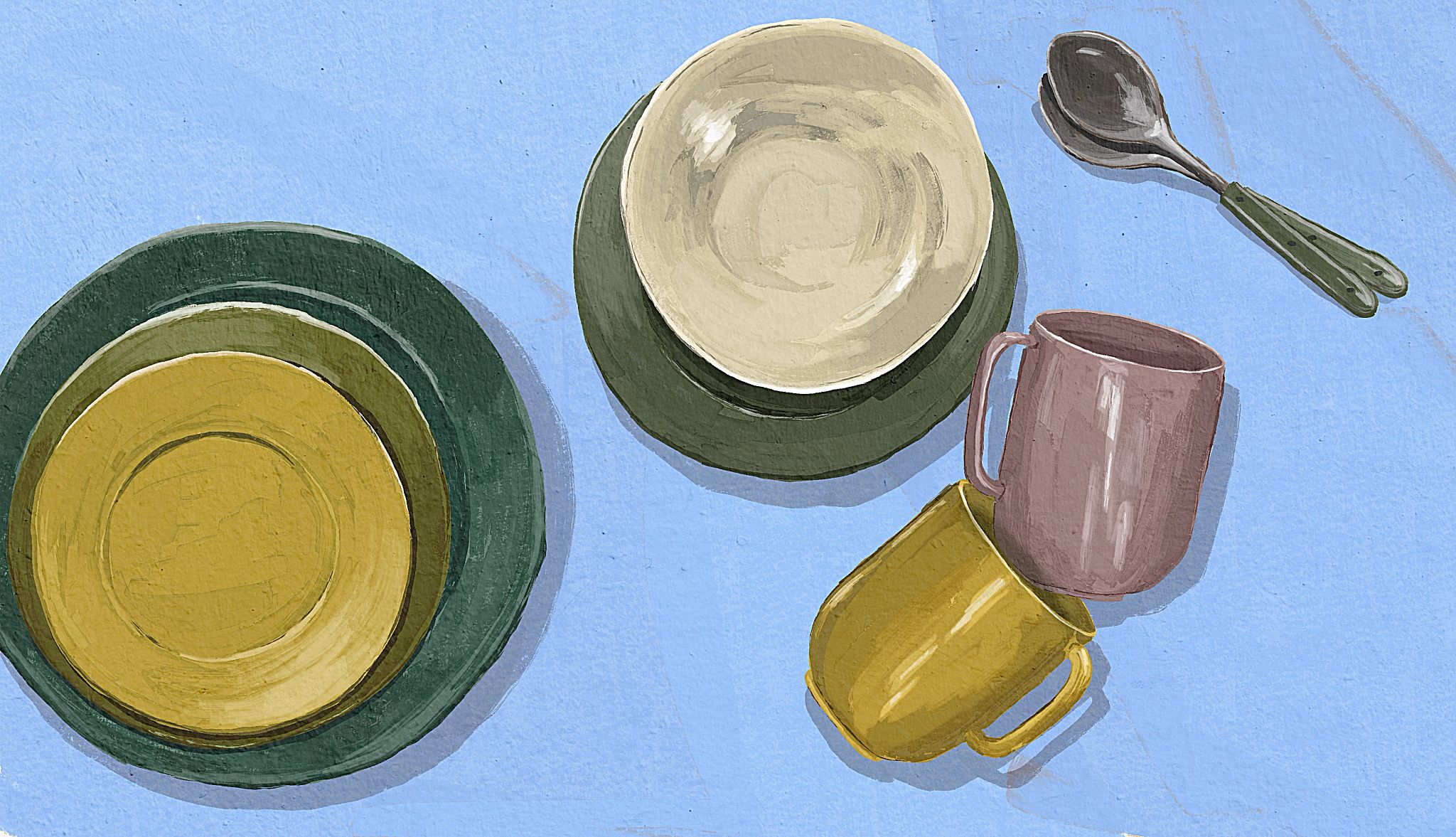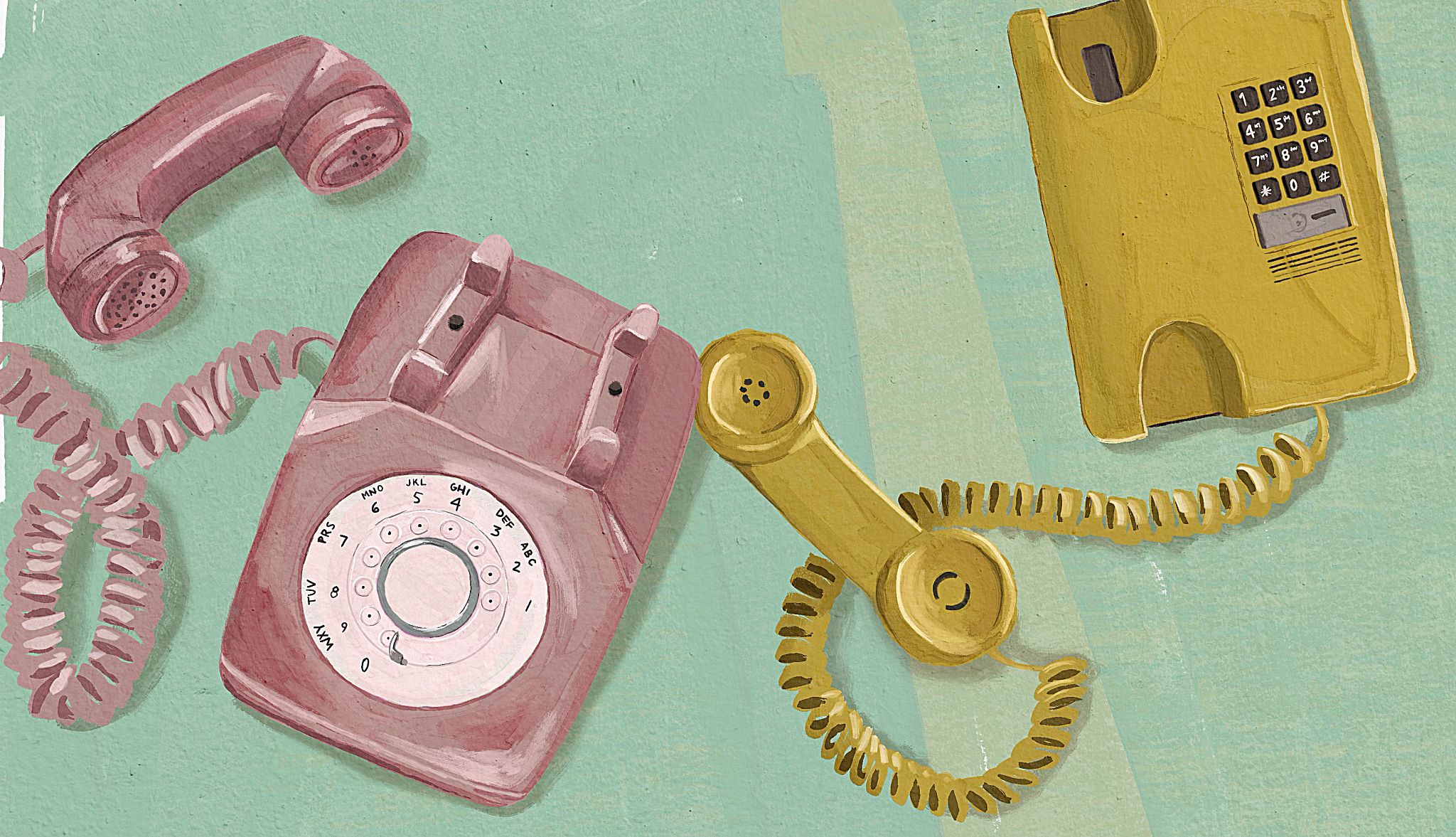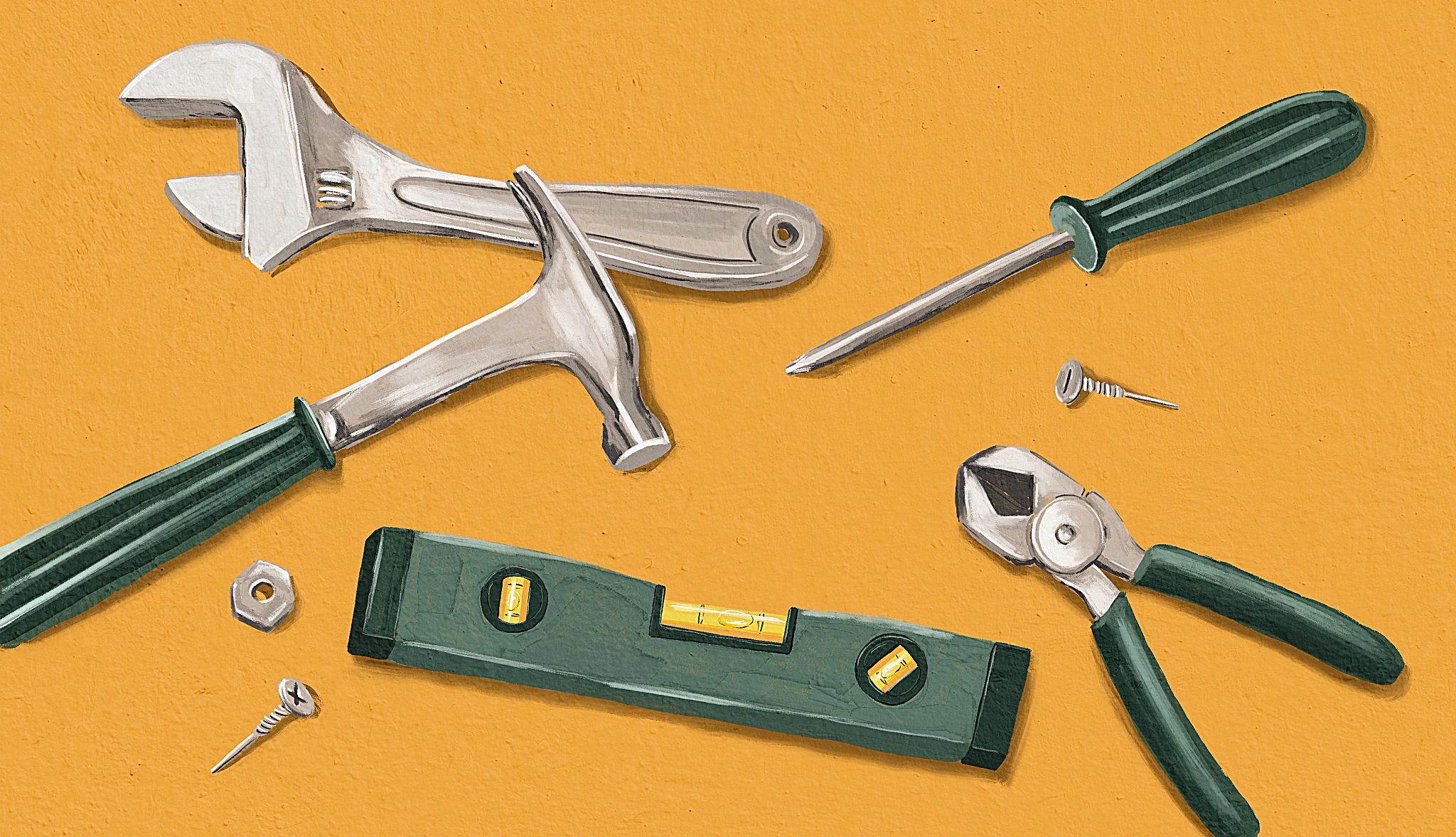AARP Hearing Center


Several studies have found that a cleaner, more organized home can reduce stress, anxiety and depression. It’s also necessary for most people looking to downsize as they grow older. But as you look around at all your stuff, you probably realize that most of it won’t be a big winner on Antiques Roadshow.
So where does it go? Once you’ve decided what to get rid of, how do you get it out of your house (and life!) without resorting to the landfill? That’s where our guide comes in. We’ve listed more than 100 items that can be sold, donated or recycled. Whether it’s books, fitness equipment, plants or a dining room table, here’s your game plan for giving your old junk a second chance. (And here’s how to keep it out of your house in the future.) Scroll below to see an alphabetized list — and let us know what we forgot! We’ll continue to update.
To sell or get rid of a few items that are still in good shape
Several national groups facilitate easy one-off decluttering close to home. Always follow safe practices when giving away items — leaving the item on your porch or curb, for example, or meeting in a safe area, like a parking lot or nearby police station. And if you are swapping or bringing in new items (we understand the temptation!), inspect them closely before bringing them into your home. No one wants a bedbug infestation with that free dresser.
The Buy Nothing Project operates locally; join a nearby community to start. Members give away items they no longer want and can request items they are looking for.
Around since 1995, Craigslist is a simple way to sell or give away items you no longer want and is location-based. You can email through Craigslist and remain anonymous.
Connected to Facebook, Facebook Marketplace allows users to sell, buy or give away items.
Another site for giving away and requesting items, Freecycle is used locally, and membership is free.
Part of the NextDoor neighborhood social media site, NextDoor Free Finds allows members to get rid of items in their neighborhood and surrounding area.
For larger decluttering
If you’re willing to spend some money and time to get rid of a lot of your stuff, consider holding an estate sale or using a reputable auction house. Or try these national spots if you’re looking to drop off a car- or truckload.
The Arc is a charitable organization that “promotes and protects the human rights of people with intellectual and developmental disabilities.” There are multiple local chapters that may accept physical item donations.
The national nonprofit organization Goodwill sells donated items in retail stores and online. They accept clean, gently used clothing and household items. Check ahead to see what they accept.
Habitat ReStores are independently-owned national reuse stores operated by local Habitat for Humanity organizations. Here you can donate new and gently used furniture, appliances, home goods, building materials and more.
The Salvation Army is a Christian not-for-profit organization. To donate items, find your local donation center’s hours and see which items it accepts. You can also arrange for a truck to pick up your items.
Vietnam Veterans of America accepts donations of used clothes and household goods to “support programs that address the concerns and needs of all veterans.” You can schedule a pickup online through ClothingDonations.org, which is a service of Vietnam Veterans of America.
If you have something specific
Ammunition: For unwanted, nonfunctional or corroded gun ammunition, the National Rifle Association (NRA) suggests checking with your local police station, gun range, gun store or local household hazardous waste program about pickup or drop-off options.
Appliances: If you purchase new appliances, many companies will remove your old ones free of charge. You can also check with local Habitat for Humanity ReStores to see if they’ll take still-working appliances. Additionally, The Salvation Army says it will accept donations of “gently used” appliances such as air conditioners, microwaves, TVs, and washers and dryers. Goodwill accepts toasters, coffeepots, electric frying pans, irons, mixers, blenders and microwaves.
Baby items: Donation Town is an organization that arranges pickups for local charities to collect a wide range of goods, including baby items. Local women’s shelters, shelters for unhoused people, or day care centers might also accept both small baby items and larger gear like swings, playpens or cribs.
Backpacks: Nonprofit organization Bags4Kids accepts backpacks in usable condition through the mail.
Batteries: According to the Environmental Protection Agency (EPA), only alkaline and zinc-carbon batteries can be safely discarded in the trash. Others, such as single-use lithium or button-cell/coin, you can drop off at your area’s e-waste recycler, or Ikea. Or find a local drop-off site through Call2Recycle, which also accepts batteries in the mail.
Beanie Babies: Sell Beanie Babies on eBay, local collectibles stores, specific Facebook groups or resale websites (many of these sites require excellent condition with tags attached). You can also donate your collection to a local police station, children’s hospital or the nonprofit SAFE (Stuffed Animals for Emergencies).
Bibles: For Bibles in good shape, nonprofit religious organizations Bible Senders and Love Packages accept donations through the mail. Another nonprofit, Mission Cry, takes mail donations of Bibles and other religious books. Recycle Bibles by removing the covers and bindings.
Bicycles: The nonprofit International Bicycle Fund, an organization that promotes bicycle transportation, lists a community bike directory organized by state that lists bicycle donation programs and organizations. Some local bike shops have in-store donation programs, too. If you live in the Pennsylvania, Maryland, Virginia or Washington, D.C., area, you can donate to the Bikes for the World organization.
Blankets: Churches, shelters for people without housing and senior centers may accept new or gently used blankets. To donate blankets in any condition, contact local animal shelters, or search for a Planet Aid donation bin.
Board games: A local school, children’s hospital or library may take board games in new or near-new condition. Check with your local Ronald McDonald House chapter about donating board games that are new and in their original packaging. Hasbro has a recycling program where you can download a free shipping label and send your old games directly to recycling company TerraCycle. Also, see if you live near one of the nearly 50 locations of 2nd & Charles. The store will buy your old games, books, CDs and more.
Books: Operation Paperback is a national nonprofit that accepts gently used books to ship to overseas military locations. The Boston-based Prison Book Program sends books to incarcerated people. You can also inquire with your local library or hospital about donating books in good condition. If your neighborhood doesn’t have a Little Free Library, you can create your own and stock it with books. Finally, there are around 1,800 used-book stores across the U.S. Many (if not most) will pay you for the books you bring in. Or sell online through Bonavendi, Half Price Books, eBay or Sell It Back. For cookbooks, check with local high school or community college culinary arts programs, which may accept donations of good-condition cookbooks.
Building supplies: Local branches of Habitat for Humanity ReStore accept building materials such as flooring, unused lumber, light fixtures, doors, windows, bricks and fencing. Also, the Construction & Demolition Recycling Association has a searchable database of local organizations that will accept salvage building products. And the Building Materials Reuse Association, in partnership with the American Wood Council and the Canadian Wood Council, has a location-based database of businesses that accept donations of wooden construction materials.


Business suits: Inquire with your local shelter about donating business suits and gently used professional clothing. Dress for Success, a nonprofit that strives to help unemployed and underemployed women, accepts in-good-condition women’s professional clothing at its local affiliates. You can also mail your professional wear to Bottomless Closet, a similar nonprofit that helps disadvantaged women in the New York metropolitan area. Donate men’s professional wear to That Suits You, a nonprofit that provides business suits to men who have completed job-training programs that it partners with.
Cameras: Donate or sell new or near-new working film and digital cameras and camcorders. Drop off devices for recycling at Best Buy or Staples. Some camera manufacturers, like Canon and Samsung, have recycling and take-back programs. Film cameras in working condition can be sent to the Film Photography Project, a volunteer-run organization whose mission is to help keep film-based photography alive.
Candles: Lightly used candles can be donated to local thrift stores, or you can recycle the glass jar or metal tin — but only after removing all the wax. It may pop out after sitting in the freezer overnight; or you can run hot (not boiling) water in the container and scoop out the wax. Remove all labels and stickers, and wash the container thoroughly before recycling with like items.
Cardboard or moving boxes: If they’re in good enough shape, you can try selling cardboard boxes on sites like BoxCycle or Facebook Marketplace. If you just want to donate them free of charge, list them on Freecycle, Craigslist or the U-Haul Box Exchange. Most curbside recycling programs accept cardboard, including broken-down boxes. Cardboard can also be composted.
Carpeting: Local Habitat for Humanity ReStores accept unused leftover carpeting. For used carpeting, use Earth911 to find a local recycling center that accepts it.
Car seats: First, check your car seat’s expiration date, which is typically between six and 10 years after its manufacture date. If it’s expired, it shouldn’t be passed on to a new owner. While most curbside recycling programs don’t accept car seats, Target stores host a car seat trade-in event every year. (In 2024, it happened over two weeks in late April.) To find another facility that recycles car seats in your area, visit RecycleYourCarSeat.org, a state-by-state directory of recycling programs for car seats. (There is also a mail-in option at CarSeatRecycling.com.)
Cards: Most curbside recycling programs will accept paper greeting cards. Remember to remove any accessories like batteries, ribbons, stickers or fabric. Cards with glitter and plastic can’t be recycled. If they are unused greeting cards, consider donating them to a senior center or retirement home.
CDs: If you can’t find a buyer on sites like eBay, Bonavendi or Half Price Books (which buy CDs, too), send your compact discs to GreenDisk, which calls itself “the leading recycler of electronic media in the United States.” You’ll have to pay shipping, but you can opt for USPS Media Mail for a cheaper rate. Additionally, there are hundreds, if not thousands, of used-record stores and pawn shops across the U.S. that may buy CDs (and vinyl records as well).
Cellphones: Before recycling, make sure you remove all of your personal information. (The Federal Trade Commission has instructions for resetting just about any device to its factory settings.) Most cellphone recycling services, like the for-profit Big Sky Recycling and the nonprofit Cell Phones for Soldiers, are free. Others, like SellCell and Gazelle, will pay for your old phones. Some stores, including Best Buy, Staples, Verizon and AT&T, also offer trade-in/recycling services. MOM’s Organic Market, an upscale grocery chain in six East Coast states and Washington, D.C., also takes cellphones for recycling.
Christmas trees: For artificial Christmas trees in good shape, see if any senior center, church or other nonprofit organization in your area would want one. Some city and town recycling programs will take artificial trees; check locally. For live trees, many cities will pick them up as part of the weekly trash or recycling collection. They may also set up temporary drop-off centers for trees. Check with your local municipality. Additionally, some Home Depot stores will collect old Christmas trees to recycle. Another possible way to get rid of an old Christmas tree is to mulch it for use in your garden. In some states you can donate your old tree to a coastal nature reserve, where it can help stabilize sand dunes.
Cleaning chemicals: Contact your local household hazardous waste program to learn how to properly dispose of these chemicals and other potentially hazardous waste. In addition to possibly entering your local community’s water supply, many chemicals can damage your plumbing or septic system.
Clothes: Vietnam Veterans of America will pick up clothing donations in most states. Another veteran-specific charity, AMVETS, accepts gently used clothing that it resells at its nationwide network of thrift stores. GiveBackBox accepts clothing donations for a number of charities from which you can choose. Just order a box (prices vary) and pack it with gently used clothes. Drop off tattered or unusable clothing at an American Textile Recycling Service bin, a Planet Aid bin or a USAgain bin. And, of course, there are old standbys such as Goodwill and The Salvation Army, as well as local thrift stores. For newer, more expensive items, consider secondhand clothing apps, such as Poshmark, ThredUp, Mercari, or Depop.
Coats and jackets: One Warm Coat is a national nonprofit that collects winter coats at its drop-off locations. There are plenty of local options for coat donations across the country, many of which ramp up their programs as the weather turns colder. If you have a fur coat, you can send it to a rehabilitator, PETA or Born Free USA, all of which use coats to keep animals warm.
Computers: Donate laptops in working condition to Computers With Causes or Globetops. Send working laptops or desktops (including flat-screen monitors) to another charity, World Computer Exchange. GreenDisk recycles computer hard drives, but not monitors. Office Depot/OfficeMax has a recycling program where you can get store credit for your old computer, and stores like Best Buy and Staples recycle most computer equipment.
Cords and chargers: Recycle cords, cables and chargers at your local Best Buy store. Even outdated cable cords and chargers may be useful to some STEM programs at nearby schools. (As always, call first before you show up.) You can also use Earth911’s search locator to find an e-waste recycler near you.
Cosmetics: Makeup doesn't last, and it should be regularly checked and disposed of. Project Beauty Share takes mail donations of new or barely used cosmetics. You can use clean, dry mascara wands as household cleaning tools or for pet care.
Crayons: The National Crayon Recycling Program accepts old crayons through the mail. Donate usable crayons to a local women’s shelter, school or foster program. The nonprofit Crayon Initiative accepts drop-offs of crayons at any Staples store, or you can ship directly to them.
Crutches and canes: Global charity Project C.U.R.E. takes physical therapy and mobility equipment through the mail. Faith-based international charity Samaritan’s Purse takes these items too, but requests a call to confirm they’ll use your items before you ship. The nonprofit You Cane Give Initiative accepts all types of new or used mobility canes and sends them all over the world. MedShare accepts medical equipment donations from individuals, hospitals and corporations/manufacturers. A nursing home or care facility in your area may also accept donations of crutches. You can also recycle aluminum crutches at most scrap metal recyclers, which will pay you a small fee.
Curtains and drapes: Donate good-condition textiles to a local thrift store or a Habitat for Humanity ReStore location near you. For dated or tattered curtains and drapes, inquire with your local animal shelter about donations, or recycle in a local textile recycling program, such as a Planet Aid bin.






































































You Might Also Like
25 Spots to Add to Your Cleaning List — Stat
Uncover hidden grime in overlooked areas of your home25 Things to Get Rid of Right Now
Declutter. Have more space. Feel more freeAARP Smart Guide to Decluttering
39 strategies on how to donate, ditch and downsize the things filling up your home